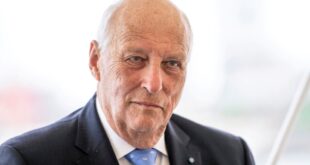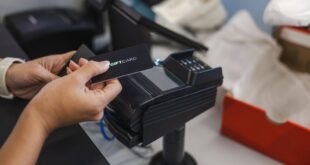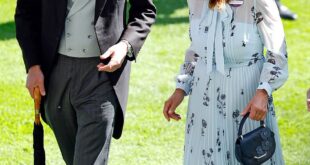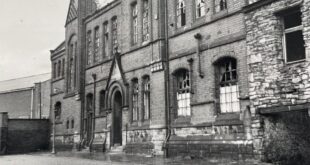EVERTON kick-off their pre-season preparations next month by making their second trip to Africa in three years.
It will be a flying visit – which is a far cry from the destination Everton’s pioneering forefathers headed for 110 years ago.
In the summer months of 1909 a 13-strong Everton FC playing staff led by two directors and a trainer, together with travelling companions Tottenham Hotspur, travelled 14,000 miles and spent more than six weeks at sea, visiting Brazil, Uruguay and Argentina – “to introduce and develop first class football.”
Their story is a fascinating one – and thanks to the diligence of director E. Bainbridge and an exhaustive tour diary he produced for the Echo, the story of the ground-breaking tour can be retold a century later.
So settle down with a cup of finest Brazilian and a corned beef sandwich, and enjoy the exploits of the Evertonian adventurers.
Like many great Evertonian trips, the story began at Lime Street station.
The Blues boarded a steam train to London Euston on Thursday May, 13 1909. From there, they travelled to Southampton – with Bleriot still two months away from piloting a monoplane across the English Channel the only way to undertake such a journey was by boat – and set out on a 23-day voyage.
But they were only joined by Spurs at the last minute.
The Tottenham party, who had been delayed by an accident, caught a later train from Waterloo but by the time they got to Southampton the Royal Mail steamer Uraguaya had started its voyage.
Not for the first time, the Londoners were forced to play catch-up with the Toffees! A tug was commandeered and, with its cargo of footballers, chugged after the liner which slowed to allow the Spurs players to board.
That was the only drama of the outward journey, but not the only spectacle.
On Tuesday, May 25 a grand fancy dress carnival was staged on board to commemorate the anniversay of the independence of the Argentine Republic.
Everton’s doughty defender, Bob Balmer, starred as Bo Peep, while the evening ended with three cheers for the Argentine national anthem; the Falkland Isles were still 73 years from being at the centre of an international incident.
When the players arrived at Brazil they went shark fishing in Pernambuco, where the method of landing passengers was “a novel one.”
“Owing to the heavy surf,” explained Mr Bainbridge, “they were put in large square baskets and swung into mid-air, then lowered into primitive barges and hauled to the town beyond.”
At least they made it ashore. From Pernambuco the boat then docked in Bahia, but the players were advised not to land “because of fever”. They then travelled to Santos, later to be made famous by Pele. In 1909, however, Bainbridge explained “a peculiar dampness has earned it the nickname ‘White Man’s Grave’ ”.
On arrival in Montevideo, the travellers were disappointed to find “weather not dissimilar to an English winter’s day” – but the passion for football was high.
Since the first game played in South America in 1867, the sport had been dominated by migrant workers from Britain.
The local working class had set up their own clubs – Boca Juniors, Racing & River Plate – in the immediate years before the tour, but power had still not shifted from the elite British based sides.
The crack side of the time, Alumni, champions of Argentina in eight out of the previous 10 seasons, lined up with a team that contained J.G. Brown, J.D. Brown, E.A. Brown, P.B. Browne, A.C. Brown and E. Brown!
The star of that game and, indeed, the tour, however, was Everton and England forward Bert Freeman who terrorised and amazed the opposition with his skills.
The appetite for information on the tour back home was voracious, but short of one paragraph telegrams from Reuters recording the scores of the various matches, the local readers had to wait until a letter from Bert, dated June 17, landed at the Echo offices.
Freeman wrote: “Of fine sights we saw many; and the best of all I put to the harbour of Rio de Janeiro. It was a brilliant spectacle at night and during the day. In the daytime one could see the full beauty of the bay, but at night when the lights added effect, the whole presented a really grand spectacle.”
The French cuisine at the Hotel Metropole where the team first stayed, however, was apparently not to the travellers liking.
“I might add,” wrote Freeman “the cooking was calculated to make us say things.”
Freeman and Bob Balmer scored in the 2-2 draw with Tottenham.
The following Thursday Everton played The Alumni FC and Freeman scored a hat-trick in a 4-0 win, then faced the Uruguayan League in Montevideo.
A pre-match tour on a tramcar, “a big feed” and a hard and rough pitch might have accounted for the narrow 2-1 win.
The final match, on June 20, was a 4-1 victory over the Argentinian League.
On the return journey the Blues stopped again in Brazil to “take on splendid samples of Brazilian fruit, passengers of 20 different nationalities, while Val Harris took possession of a parrot!”
Spurs used the tour to try out 21-year-old Walter Tull, said to be the grandson of a slave, who had been earning rave reviews for Clapton.
He impressed so much that on return to England, he was signed up on the maximum wage of £4 per week and was only the second black man to play professional football in Britain.
He was also the star of another fancy dress carnival, this time to celebrate the anniversary of the constitution of the Argentina Republic.
Bainbridge recorded that: “Messrs Wilkes and Tull of Spurs, the latter a gentleman of colour, won third as Robinson Crusoe and Man Friday and really deserved their reward.”
On June 25 the two clubs boarded the Royal Mail steamer Asturias for another three-week voyage; this time homeward bound.
The travellers arrived back home on July 20, 1909 “bronzed and well” – and director Bainbridge’s complete review was carried in the Football Echo of July 24, 1909.
He concluded: “It is to us a most pleasant reflection that we have contributed something to sport in South America and we venture to hope and trust that our visit will not have been in vain and that a spirit of emulation will not only be maintained, but persevered with.
“No doubt it will be, with such an intelligent class of players who only require development.”
With two World Cup wins for Uruguay, another two for Argentina and five for Brazil, it could be suggested that it was mission accomplished.
Source link



